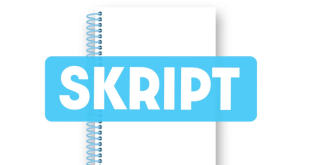Introduction
In recent years, the rapid advancement of technology has dramatically reshaped the way we learn and interact with education. Online learning, once considered supplementary, has now become a significant part of the academic journey for millions of students worldwide. Higher education institutions, in particular, have embraced this transformation, incorporating e-learning into their curricula. But what does this mean for the future of education? How is online learning influencing student experiences, outcomes, and accessibility? In this article, we will explore the profound impact of online education on higher learning and discuss why it’s becoming a vital component of modern education systems.
The Evolution of Online Learning in Higher Education
Online learning wasn’t always the major force it is today. Initially, online courses were limited to a few institutions and mainly catered to adult learners seeking flexible education options. However, the rise of Massive Open Online Courses (MOOCs) and technological advancements in the mid-2000s opened doors to new possibilities. Colleges and universities began to recognize the potential of digital platforms to reach a wider audience, and online education began to flourish.
The COVID-19 pandemic further accelerated this shift. Many institutions were forced to rapidly adopt online platforms to ensure the continuity of learning. This pivot, once thought to be temporary, has now become a long-term strategy for many universities.
Benefits of Online Learning
Online education offers several unique advantages, making it a preferred choice for many students.
1. Flexibility and Convenience
One of the most notable benefits of online education is the flexibility it offers. Students can access coursework from anywhere at any time, making it ideal for those who are working or have other commitments. This flexibility allows students to learn at their own pace, reducing the pressure associated with traditional classroom settings.
2. Access to a Global Learning Community
Online learning transcends geographical boundaries. Students from different parts of the world can enroll in courses offered by prestigious institutions, gaining exposure to diverse perspectives and ideas. This creates a rich, global learning environment that fosters innovation and creativity.
3. Personalized Learning Experiences
With the integration of artificial intelligence (AI) and machine learning, online platforms can tailor learning experiences to individual students. Whether it’s adaptive learning paths or personalized feedback, students are now able to receive the support they need in areas where they struggle, ensuring better learning outcomes.
4. Cost-Effective Education
Online programs often come with reduced tuition costs compared to traditional in-person programs. Moreover, students save on commuting, housing, and other related expenses. This affordability makes higher education more accessible to a broader audience.
Challenges of Online Learning
While online education has many advantages, it also comes with its own set of challenges.
1. Lack of Physical Interaction
One of the major criticisms of online learning is the lack of face-to-face interaction. Traditional classroom settings provide opportunities for spontaneous discussions, group work, and networking, which are harder to replicate in a virtual environment. For some students, this lack of social engagement can lead to feelings of isolation.
2. Time Management
While flexibility is a major benefit of online education, it can also be a drawback for students who struggle with time management. Without the structured environment of a physical classroom, some students may find it difficult to stay on top of assignments and deadlines.
3. Technology Barriers
Not all students have access to the necessary technology for online learning. Reliable internet access, up-to-date hardware, and a quiet learning environment are essential for success in an online course. In areas where these resources are lacking, students may be at a disadvantage.
How Universities are Adapting
As online learning continues to grow, universities are adapting their teaching methods and course offerings. Many institutions are now providing hybrid programs that combine both online and in-person learning, allowing students to get the best of both worlds.
In addition, universities are investing in their online infrastructure. Learning Management Systems (LMS) like Moodle, Canvas, and Blackboard are being upgraded to offer more interactive and user-friendly experiences. Virtual labs, discussion boards, and live video sessions are just some of the features that enhance the learning experience.
Moreover, universities are partnering with online platforms like Coursera and edX to offer specialized courses and degrees. This collaboration allows institutions to expand their reach and provide students with a broader range of academic opportunities.
The Role of Online Certifications and Short Courses
Another significant development in online education is the rise of certifications and short courses. Unlike traditional degree programs, these courses are typically focused on specific skills or industries, making them an attractive option for professionals looking to upskill or pivot their careers. Many universities now offer these programs, often in partnership with industry leaders.
For instance, Dev Bhoomi Uttarakhand University (DBUU) offers various online certifications tailored to meet industry demands. The programs are designed to provide practical, hands-on experience, ensuring that students are job-ready upon completion. This trend of micro-credentials is reshaping the way individuals approach higher education, emphasizing lifelong learning and skill acquisition over traditional degrees.
Future of Higher Education: A Blended Approach
The future of higher education is likely to be a blended one, where online learning complements traditional in-person classes. Hybrid programs offer the flexibility of online courses while still providing the benefits of face-to-face interaction. In fact, many universities are already seeing success with this model.
Institutions like Dev Bhoomi Uttarakhand University are leading the charge in creating innovative hybrid programs. Students have the option to attend lectures in person or view recorded sessions online. This approach accommodates different learning styles and ensures that students can balance their education with other commitments.
Additionally, the development of virtual reality (VR) and augmented reality (AR) technologies could take online learning to the next level. Imagine attending a virtual lecture in a fully immersive 3D environment, or participating in a lab experiment from the comfort of your home. These technologies have the potential to bridge the gap between online and in-person learning, creating a seamless educational experience.
Impact on Student Careers
One of the main concerns students have about online education is whether it will be valued by employers. Fortunately, attitudes are shifting. More and more employers are recognizing the value of online degrees and certifications, particularly when they come from reputable institutions.
In many fields, practical experience and demonstrated skills are more important than where or how you obtained your education. Online platforms are increasingly focused on providing students with hands-on experience through internships, projects, and collaborations with industry professionals. As a result, students who pursue online education are often just as prepared—if not more so—than their peers who attended traditional programs.
Conclusion
Online learning is no longer the future—it is the present. The flexibility, accessibility, and personalized learning experiences offered by digital education platforms are transforming higher education as we know it. Institutions like Dev Bhoomi Uttarakhand University are at the forefront of this revolution, providing students with the tools they need to succeed in an ever-changing world.
As more universities adapt to the digital age, the lines between traditional and online learning will continue to blur, creating a more inclusive and flexible education system. Whether you’re a student looking to expand your knowledge or a professional aiming to stay ahead in your career, online education offers endless possibilities.
If you’re interested in discovering more opportunities for higher education, platforms like Universitychalo can guide you through your options, ensuring you find the right path for your future.







